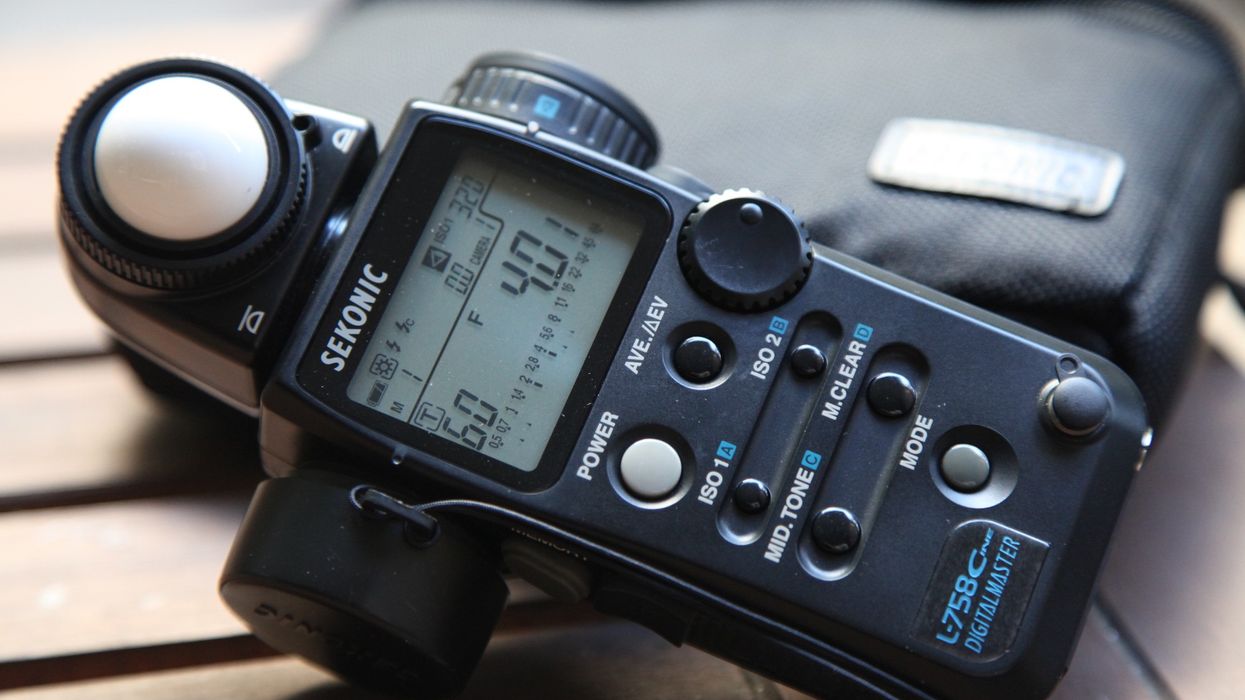Watch: Where Do Light Meters Fit in Modern Cinematography?
Though light meters can be very helpful for measuring light, there are plenty of contemporary no-budget filmmakers that don't use them. Is this an issue?

Do you use a light meter? If you said no, you're not alone, and not only are you not alone, you're most likely one of many filmmakers who is just getting started on their filmmaking career. So, what's the deal with that? Why don't beginners use light meters? Are they too complicated to use? No, they're pretty easy. Is the information they provide too complicated? No, exposure's a relatively straightforward concept. So, why aren't new filmmakers using light meters more?
This is actually a pretty interesting topic that Matt Workman of Cinematography Database talks about in his latest video, except he doesn't stop just at new filmmakers, but expands the discussion to include all modern cinematographers. He shares his own experience as a beginner cinematographer who didn't really use light meters when working with CCD digital cameras but found out how important they can be when taking on large-scale professional projects.
I started making films before DSLRs were a widely accepted filmmaking tool. While a lot of my friends had become overnight photographers thanks to the Rebel, some even invested in the 5D Mark II, I was a full-time student and employee who was saving up as much money as I could in order to buy a "real camera," which ended up being a Panasonic HVX-200, just like Workman.
And also like Workman, I decked that thing out with a 35mm adapter (Letus) and a fast prime and went out and shot a ton of super-cinematic-at-the-time videos and shorts that did not age well. In fact, looking back on them now, they're all underexposed pieces of garbage...but I digress.
In all that time and after all of those projects, I never once used a light meter. Yeah, I had used one while working as a PA on some super low-budget feature before I had any gear of my own, but that knowledge didn't seem to translate or even matter when I moved on to making my own stuff or working on projects on a more professional level.
So, I can say from experience, no, you don't need a light meter if you're just starting out. Believe me, you have a lot of other more important things to worry about and gear to buy. However, learning how to use light meter can have so many great benefits, one of which Workman talks about near the end of the video.
He poses the question, "How do you go from a camera and a light to a rented bigger camera and 50 lights and 10 people working under you just in the Lighting Department?" In other words, how do you make the transition from small no-budget productions to professional big-budget productions? What does that process look like? What do you need to know in order to get there?
Well, according to Workman, he says that one thing you can do is know how to change your lighting and camera settings to match the image you see in your head. One way you can learn to do that is by using a light meter because as you familiarize yourself with the readings and how they look on camera, you'll begin to know what your scene looks like without even having to look at your camera. Why is that important? Well, because then you'll be able to visualize your scenes in pre-production and know exactly what kind of lighting you're going to need, all before you even have a camera to look through because you know what your light meter readings mean. You'll be able to confidently request your budget and confidently talk to your gaffer and other collaborators.
Of course, this is just one side of the argument. Others may have other experiences with light meters and have formed their own opinions about their importance. Feel free to share yours in the comments below.
Source: Cinematography Database











